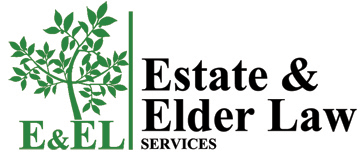Protect Your Finances from Elder Abuse

Don’t pass on reading this blog thinking you are too savvy to be a victim of some kind of financial abuse-- a growing issue for seniors. Ask your friends. I suspect you will quickly hear of a ‘near miss’ if not a real victim.
Like it or not, as we grow older, many factors make us susceptible to abuse: isolation, simple forgetfulness and early dementia. I know of one lovely woman in her 90s who had magazine subscriptions for the next 30 years because she gave in to high-pressure sales people. To me that’s abuse.
Unfortunately, the nest egg you accumulated over decades and plan to pass along to your kids makes you an attractive target for care providers who want to take advantage as well scams targeting seniors.
Here are 10 steps you can take to guard against financial abuse.
1. Arrange for another set of eyes to see your monthly statements to help watch for unusual activity – large checks or unknown payees.
2. Create a Power of Attorney and permit a trusted agent to be a co-signer, not a joint owner, of your bank account(s). Your agent can stop payment on any odd or suspicious checks and can write checks for you.
3. Set up revocable trusts which include the benefits of joint accounts, with few of the drawbacks. Someone who is trustworthy has access to the accounts in the trusts and the ability to step in seamlessly the help, but the funds in the trust become part of the estate when you die.
5. If you don’t like the idea of a joint bank account or a trust, you can take the simple step of getting someone to help you sort through your bills each month. He or she can make sure you're not letting anything slip through cracks, toss solicitations and magazine subscriptions you don’t want and, in general, help you determine what is important and what is not.
6. Get a credit card that allows another person to monitor the card activity. This is helpful in the same way as item #1 – another set of eyes may see something you miss. With some cards, you can set a charge limit which will keep your impulses under control and limit what you might transfer to a scam.
7. Sign up for the Do Not Call Registry. It’s easy to register your telephone number with the Federal Trade Commission's registry either online at www.donotcall.gov or by calling 888.382.1222. This should help reduce calls from high pressure salespeople with a quota.
8. Opt out of mail solicitations by going to www.DMAchoice.org to limit the number of catalogs, credit card offers and other direct mail pieces you get offering you tempting things to buy or asking for money for the next campaign.
9. Put out the welcome mat. Encourage friends and family to visit and get out when you can. Predators are looking for people who are isolated, and even short visits with those you love will brighten your day.
10. Consult with an elder law attorney who can legally protect your wealth and possessions to further discourage financial abuse.
While there's no foolproof measure you can take to prevent financial fraud and abuse, these steps can make the world a safer financial place and help you maintain your independence.
NOTE TO OUR READERS: The Department of Justice here in Delaware publishes an excellent brochure called S.A.V.E.: Stop Abuse of the Vulnerable and Elderly which discusses many types elder abuse and signs of elder abuse. Suspected elder abuse should be reported to Adult Protective Services at 1-800-223-9074.
